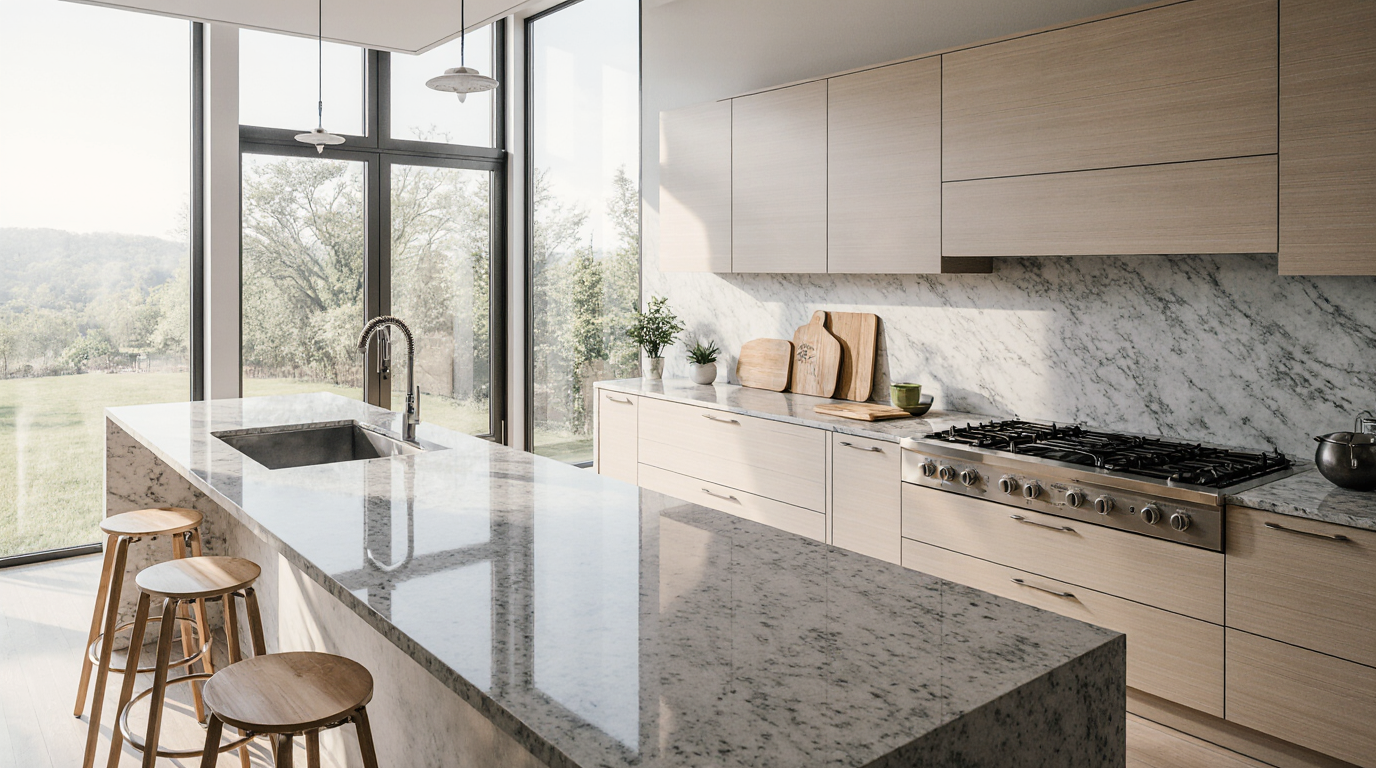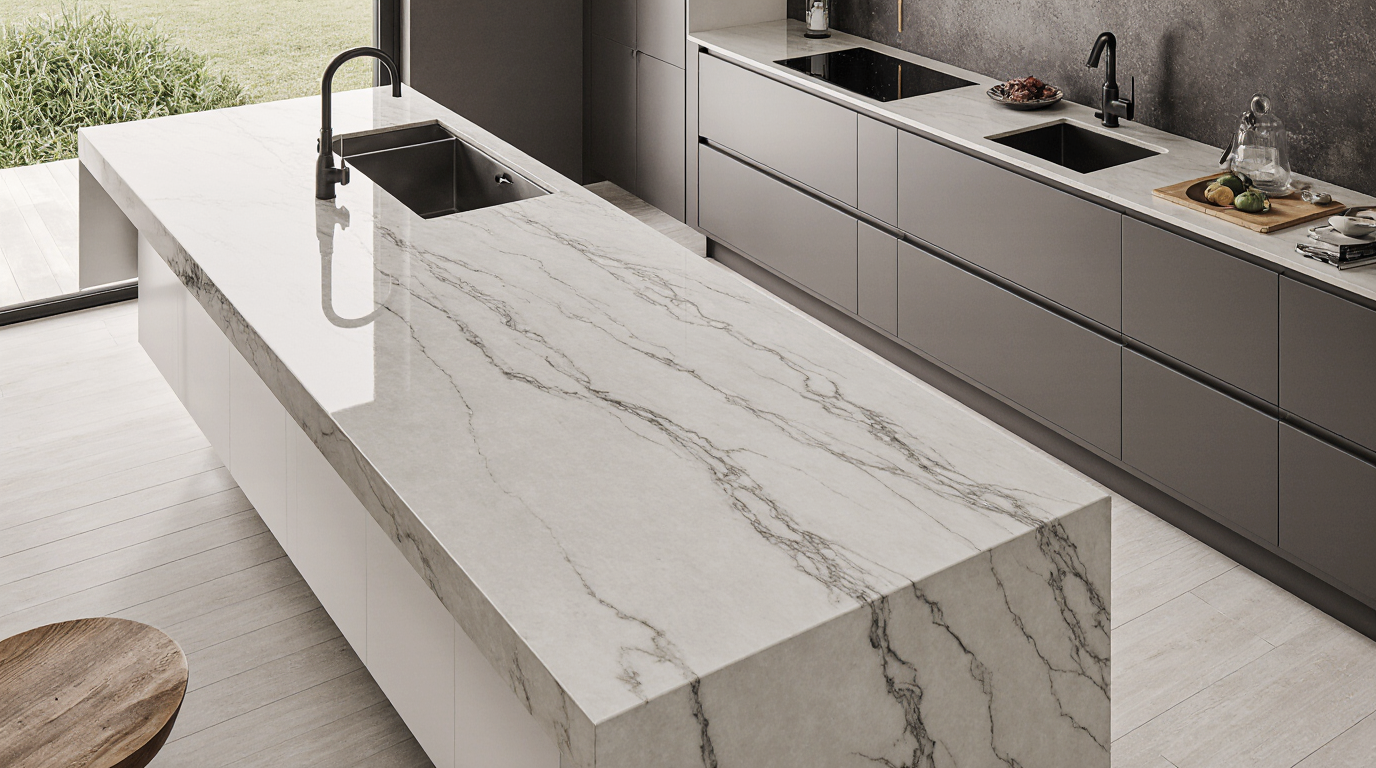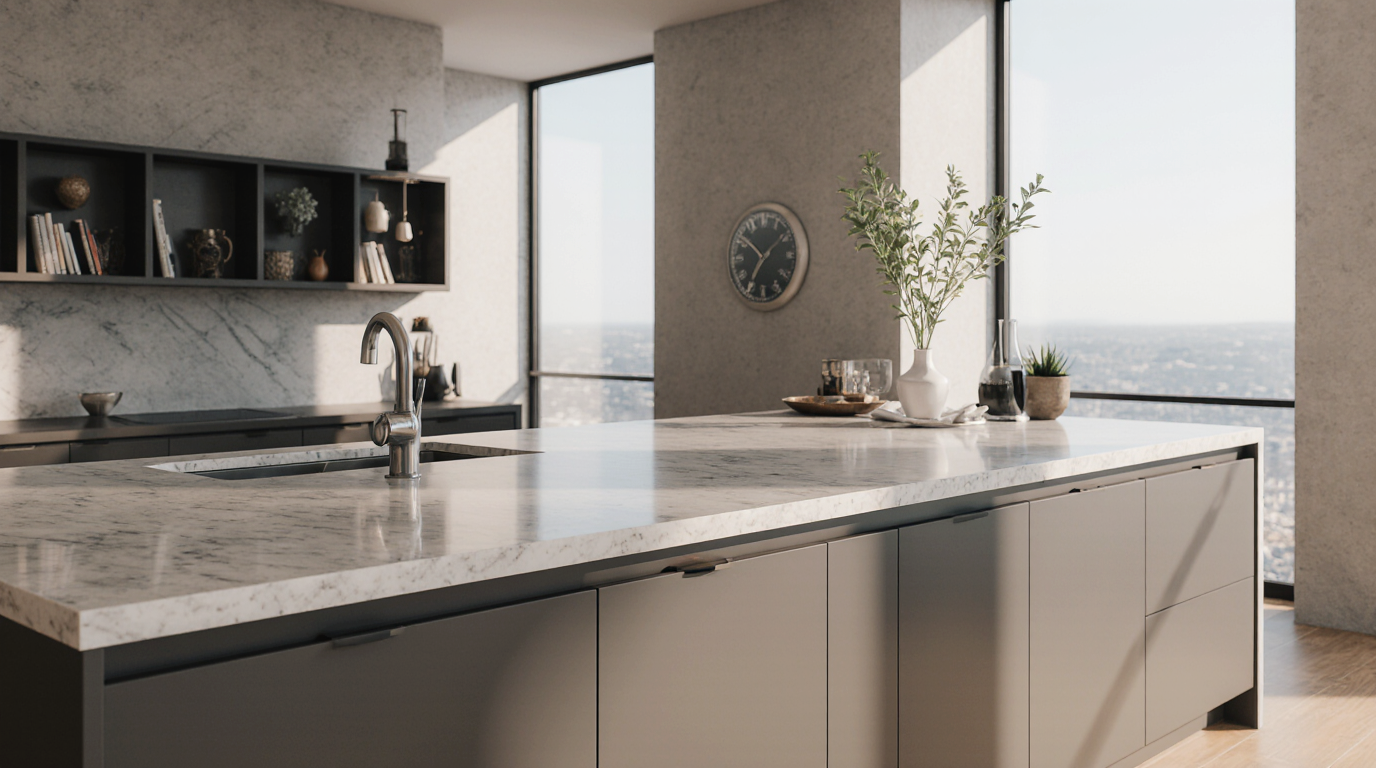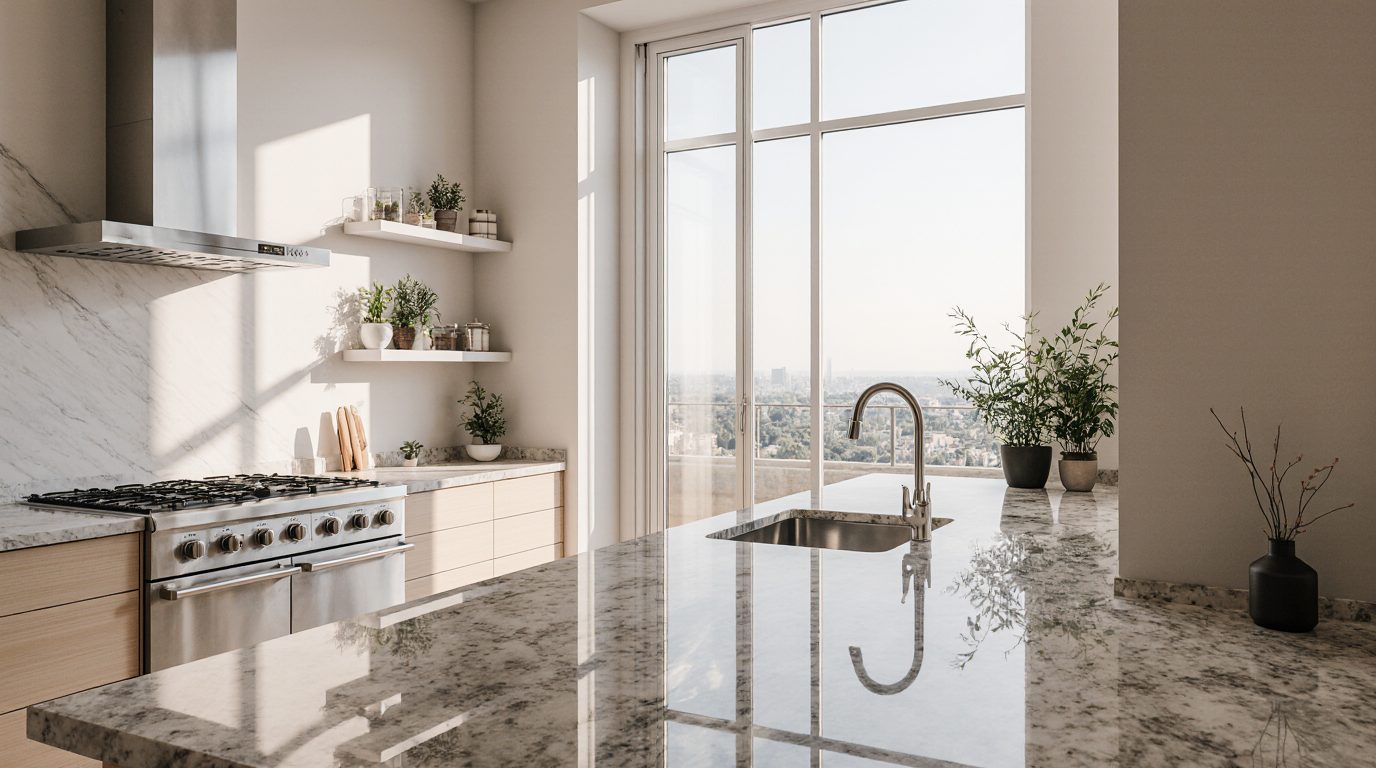Porcelain Countertops Cost

Investing in Porcelain Countertops: Costs, Benefits, and Timeless Design
During a kitchen or bathroom makeover, assessing the investment in porcelain countertops is essential for both budgeting and design, The interior design world increasingly values porcelain for its blend of resilience, visual sophistication, and multifunctionality. Unlike traditional materials, porcelain offers a premium look reminiscent of natural stone, such as marble or granite, while providing superior resistance to heat, scratches, and stains. Homeowners and designers alike are increasingly drawn to porcelain for its ability to elevate both modern and classic interiors without compromising functionality.
The price of porcelain countertops varies significantly depending on factors such as thickness, finish, brand, and fabrication process. Typical investments for premium porcelain range from $70–$120 per square foot, and professional installation contributes an additional $25–$50 per square foot. The variation in cost often reflects the manufacturing method, with sintered porcelain offering enhanced strength and consistency in color patterns. A clear comprehension of material costs relative to installation fees enables homeowners to budget effectively while securing high-quality outcomes.
One of the most compelling reasons for choosing porcelain is its exceptional durability. Natural stones often absorb liquids and stain, whereas porcelain remains impervious, ensuring suitability for high-traffic cooking and bathing spaces. By eliminating sealing requirements and reducing cleaning demands, porcelain saves homeowners long-term upkeep expenses. With superior heat tolerance, porcelain accommodates hot cookware without compromising integrity, further justifying the initial expenditure.
Design flexibility is a major driver for homeowners investing in porcelain. Manufacturers now offer a vast array of colors, patterns, and finishes, from matte and polished surfaces to textures that mimic natural stone or concrete. Porcelain’s adaptive aesthetics empower the creation of cohesive and sophisticated kitchen or bathroom environments. Upscale, large-format or tailored porcelain slabs might cost more initially, yet their durability and flawless appearance offer substantial value.
Installation intricacies of porcelain contribute notably to overall pricing. Porcelain is notably harder and denser than granite or quartz, which requires specialized cutting tools and skilled labor for precise fitting. Certified installers provide flawless joins and impeccable alignment, maximizing both functionality and visual elegance. Errors in home installation risk damaging expensive slabs, ultimately inflating the final expenditure.
In addition to aesthetic and functional benefits, porcelain countertops offer significant hygienic advantages. Porcelain eliminates microscopic crevices that can harbor mold or bacteria, ensuring a healthier home space. Unlike natural stones that can harbor microorganisms in microscopic pores, porcelain surfaces are easier to sanitize, supporting a healthier home environment. Homeowners gain a dual benefit of elegant design and hygienic functionality, boosting the countertop’s overall ROI.
Porcelain countertops also shine in terms of eco-friendliness. Eco-friendly porcelain utilizes natural raw materials and efficient production techniques. Choosing porcelain not only contributes to a longer lifespan for the countertop but also reduces environmental impact compared to some resin-based or engineered stones. For homeowners who prioritize sustainable design, investing in porcelain offers a responsible solution without compromising on style or quality.
Maintenance costs for porcelain countertops are minimal compared to other high-end materials. Routine care with gentle cleansers preserves its flawless surface, and inherent scratch and stain resistance prolong visual appeal. This low-maintenance factor adds to the overall cost-effectiveness, making porcelain a smart choice for those who desire long-term durability without frequent upkeep. Additionally, its resistance to UV rays ensures that countertops in sunlit kitchens do not fade, preserving the integrity of the color and pattern for decades.
Homeowners should weigh initial expenditures against decades of durable performance. Even with premium pricing, porcelain’s durability, minimal care requirements, luxurious aesthetics, and sanitary properties justify the investment. Homeowners who plan to sell their property in the future may also benefit from increased resale value, as porcelain countertops are often viewed as a premium feature in modern homes.
In summary, understanding the cost of porcelain countertops involves more than just the price per square foot. Factors such as material quality, slab size, design complexity, installation labor, and long-term durability all contribute to the overall investment. Porcelain’s combination of robustness, customization potential, easy upkeep, and sanitary advantages positions it as a premium countertop solution. By evaluating all aspects of material and installation costs, homeowners can confidently select porcelain as a long-lasting centerpiece for their kitchen or bathroom remodel, ensuring both beauty and practical value for years to come.
Consumer interest grows as porcelain balances high-end design with functional durability. Porcelain elevates interior aesthetics while ensuring practicality, resilience, and easy upkeep. Whether remodeling a modern kitchen, upgrading a bathroom, or investing in a luxury renovation, understanding porcelain costs and benefits empowers homeowners to make informed, value-driven decisions that align with both aesthetic and functional goals.




